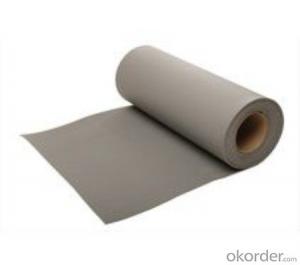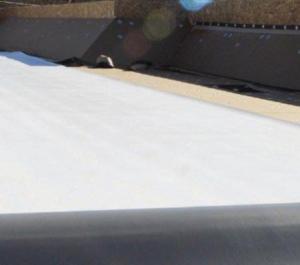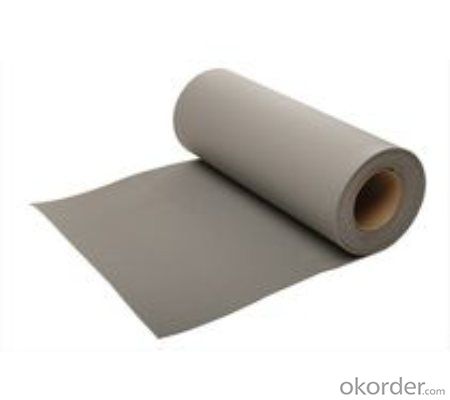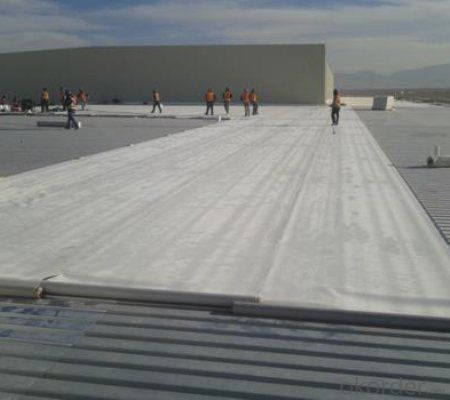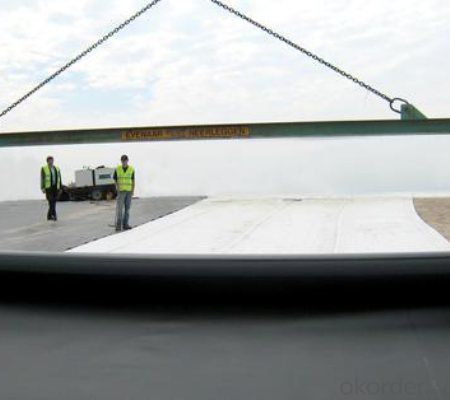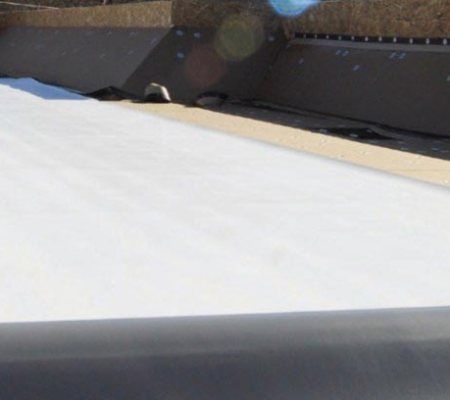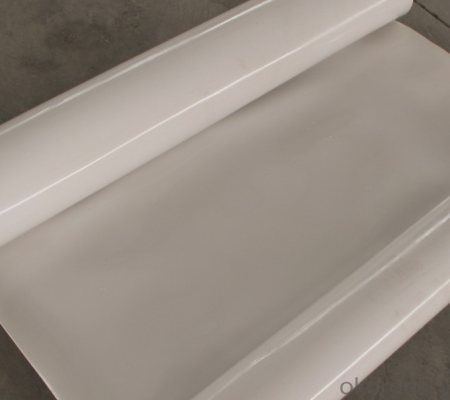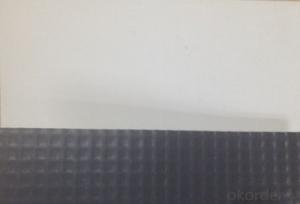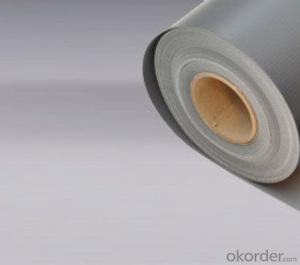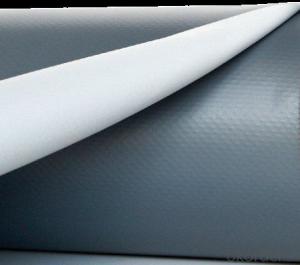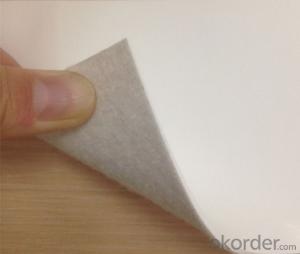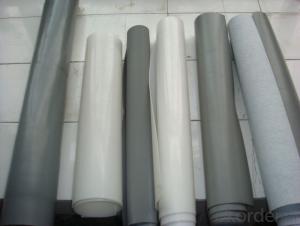TPO Membrane Polyester Reinforced for Waterproof System
- Loading Port:
- Qingdao
- Payment Terms:
- TT or LC
- Min Order Qty:
- 8000 m²
- Supply Capability:
- 100000 m²/month
OKorder Service Pledge
OKorder Financial Service
You Might Also Like
TPO Membrane Polyester Reinforced for Waterproof System
Description Of TPO Membrane Polyester Reinforced for Waterproof System:
1. TPO Membrane Smooth is made from Thermoplastic polyethylene hydrocarbons , which is for waterproofing of exposed and non-exposed applications.
2. TPO Membrane Smooth adopts the world-advanced equipment of cold feeding extrusion and continuous vulcanization technology.
3. TPO Membrane Smooth is of high elasticity among high polymer waterproof materials and becomes a world-popular waterproofing material.
Main Features of TPO Membrane Polyester Reinforced for Waterproof System:
1. Excellent physical and mechanical performance
2. High tearing resistance
3. Good deformation adaptability
4. High puncture resistance
5. High aging resistance
6. UV resistance
Specifications of TPO Membrane Polyester Reinforced for Waterproof System:
Material | Thermoplastic polyethylene hydrocarbons and Polyester |
Size | 1.2m (width)*20m (length) or customized, weldable type 2.05m |
Thick | 1.2mm, 1.5mm, |
Type | Smooth |
Pattern | Non-reinforced (homogeneous) |
Certificate | ISO9001/14001 |
Applications of TPO Membrane Polyester Reinforced for Waterproof System:
1.Roofs, Basement
2. Industrial and civil building waterproofing
3. Geosynthetic liner for swimming pool, channels, irrigation system
IMages of TPO Membrane Polyester Reinforced for Waterproof System:
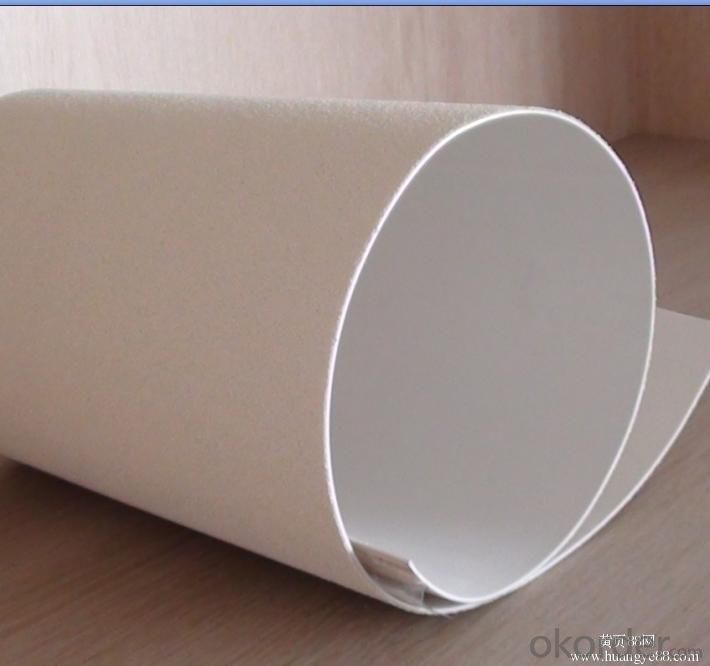
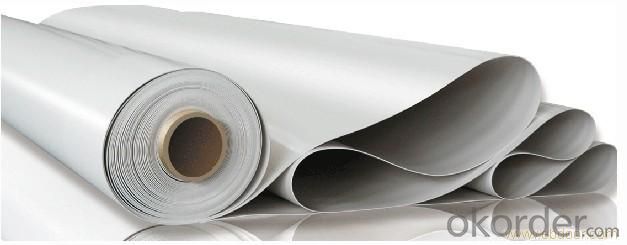
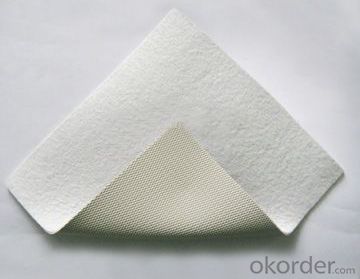
FAQ:
1. What are we supplying?
We are specialized in producing Colorful Asphalt Roof Shingle, SBS/APP modified bitumen waterproof membrane, Self adhesive bitumen waterproof membrane, PVC waterproofing membrane, EPDM rubber roofing membrane, Single Component Polyurethane Waterproof Coating, and Spray Polyurea Waterproof Coating
.
2. How Many years experience do we have?
We have been exported to more than 15 countries in the past 10 years.
3. How long do we usually reply your request?
We always reply our customer within 12 hours.
- Q: Are waterproofing membranes resistant to earthquake-induced water pressure?
- Yes, waterproofing membranes are designed to be resistant to earthquake-induced water pressure. These membranes are specifically engineered to provide a barrier against water infiltration, even under high-pressure situations caused by an earthquake.
- Q: Can a waterproofing membrane be used for a shopping mall?
- Yes, a waterproofing membrane can be used for a shopping mall. A shopping mall typically has multiple levels and a large surface area, which makes it susceptible to water infiltration from rain, plumbing leaks, or other sources. Installing a waterproofing membrane can provide an effective solution to protect the structure and its contents from water damage. The membrane is typically applied to the exterior walls, roofs, and foundation of the shopping mall to create a barrier against moisture penetration. It acts as a protective layer that prevents water from seeping into the building, reducing the risk of structural damage, mold growth, and other related issues. Additionally, a properly installed waterproofing membrane can also help to improve energy efficiency by reducing heat loss and preventing water-related deterioration of insulation materials. Therefore, using a waterproofing membrane is a wise choice for ensuring the long-term durability and functionality of a shopping mall.
- Q: Can a waterproofing membrane be used in conjunction with vapor barriers?
- Yes, a waterproofing membrane can be used in conjunction with vapor barriers. In fact, it is often recommended to use both to ensure comprehensive protection against moisture. Waterproofing membranes are designed to prevent water from penetrating through a surface, such as a roof or foundation, while vapor barriers are designed to prevent the passage of water vapor. By using both, you can effectively prevent both liquid water and water vapor from causing damage to a structure. The waterproofing membrane acts as a physical barrier to prevent water from entering, while the vapor barrier prevents the buildup of moisture within the structure. This combination can be particularly beneficial in areas with high humidity or where there is a risk of water intrusion.
- Q: Can a waterproofing membrane be used on metal block surfaces?
- Yes, a waterproofing membrane can be used on metal block surfaces. Waterproofing membranes are designed to create a barrier against water and moisture, and they can be applied to a variety of surfaces, including metal. The membrane will adhere to the metal surface, creating a waterproof layer that helps prevent water infiltration and protect the metal from rusting or corrosion. However, it is important to ensure that the metal surface is clean, dry, and properly prepared before applying the waterproofing membrane to ensure proper adhesion and effectiveness. Additionally, it is recommended to consult with a professional or refer to the manufacturer's instructions for specific guidance on using a waterproofing membrane on metal block surfaces.
- Q: Can a waterproofing membrane be used on below-grade foundations?
- Yes, a waterproofing membrane can be used on below-grade foundations. Waterproofing membranes are commonly used to prevent water infiltration and protect the foundation from moisture damage in below-grade applications.
- Q: Can waterproofing membranes be used on concrete dams?
- Yes, waterproofing membranes can be used on concrete dams. In fact, they are commonly used in the construction and maintenance of concrete dams to prevent water leakage and seepage. Waterproofing membranes are designed to create a barrier that is resistant to water penetration, protecting the concrete surface of the dam from damage caused by water. These membranes can be applied to both the interior and exterior surfaces of the dam, providing a reliable and long-lasting solution for waterproofing. Additionally, waterproofing membranes can also help to mitigate the risk of waterborne deterioration, such as freeze-thaw damage and corrosion of reinforcement, thereby extending the lifespan of the concrete dam.
- Q: Can a waterproofing membrane be used on tunnels with pedestrian traffic?
- Tunnels with pedestrian traffic can indeed utilize a waterproofing membrane. Such membranes are frequently employed in subterranean structures, such as tunnels, to avert water infiltration and safeguard the structure against water-related harm. Generally, these membranes are applied to the outer walls and floors of the tunnel, thereby forming a barrier against water penetration. They are engineered to endure the weight of traffic and provide long-lasting protection against moisture. Furthermore, certain waterproofing membranes possess anti-slip characteristics, ensuring the safety of pedestrians traversing the tunnel. All in all, employing a waterproofing membrane on tunnels with pedestrian traffic constitutes an effective approach to bolster the longevity and safety of the structure.
- Q: Are waterproofing membranes resistant to battery acid?
- Yes, waterproofing membranes are generally resistant to battery acid.
- Q: Can a waterproofing membrane be used in geotechnical applications?
- Indeed, geotechnical applications can make effective use of waterproofing membranes. These membranes are commonly employed to safeguard structures against water infiltration and are applied to various surfaces such as roofs, basements, and foundations. In geotechnical applications, these membranes serve the purpose of preventing water from seeping into the soil, thus averting erosion and stabilizing slopes. They can be positioned either horizontally or vertically to establish a barrier that hinders water penetration, which proves particularly advantageous in retaining walls, embankments, and dams. Furthermore, waterproofing membranes can be used to regulate water flow and enhance drainage in geotechnical projects. All in all, incorporating a waterproofing membrane into geotechnical applications can significantly enhance the longevity and performance of structures while effectively safeguarding them against water-related issues.
- Q: Can a waterproofing membrane be used in conjunction with flooring materials?
- Yes, a waterproofing membrane can be used in conjunction with flooring materials. In fact, it is often recommended to use a waterproofing membrane when installing certain types of flooring, such as in wet areas like bathrooms, kitchens, or basements. A waterproofing membrane acts as a barrier against moisture, preventing water from seeping through and damaging the flooring material or the subfloor. It helps to protect the flooring from leaks, spills, or even excessive moisture in the air. By using a waterproofing membrane, you can ensure the longevity and durability of your flooring, while also maintaining a waterproof and moisture-resistant environment.
Send your message to us
TPO Membrane Polyester Reinforced for Waterproof System
- Loading Port:
- Qingdao
- Payment Terms:
- TT or LC
- Min Order Qty:
- 8000 m²
- Supply Capability:
- 100000 m²/month
OKorder Service Pledge
OKorder Financial Service
Similar products
Hot products
Hot Searches
Related keywords
